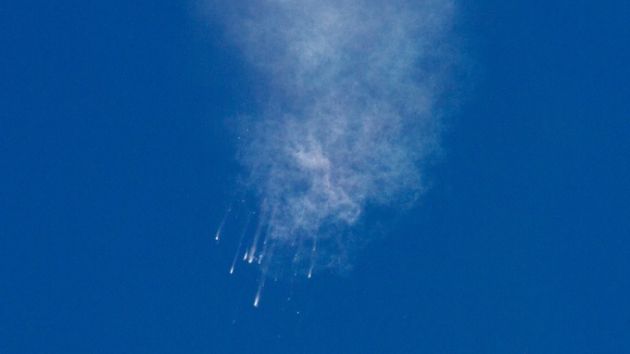SpaceX Falcon 9 rocket explosion might have a big impact on space station food stockpile

The future of spaceflight suffered another blow when a SpaceX rocket that was bound for the International Space Station exploded seconds after liftoff. The unmanned Falcon 9 rocket was set to deliver supplies to the ISS.
The incident was the first time that SpaceX lost a rocket, but it was NASA's third in eight months. The space agency had previously seen an Orbital Sciences launch and a Russian resupply vehicle fail and these failures have had people wondering how long the ISS scientific researchers can survive.
NASA officials appear to be optimistic that the ISS crew has enough food and water to last them until October. But while they remain confident, the reality is much more serious. A presentation that NASA officials made last April pegged the ISS to be dipping into their food "reserve levels" in July and ultimately run out by September. And in the event that the space station's water-processing system fails, their water will also run out by September 17.
But a spokeswoman for NASA, Stephanie Schierholz, tried to smooth over these concerns last Monday. She explained that the presentation NASA previously gave were "very conservative projections" and gave assurances that the space station has enough reserves to carry them "well through October even without additional resupply."
While NASA was studying the effects the lost cargo will have on the ISS crew, the engineers of Space X were also studying, going over mounds of data in order to understand why their rocket essentially disintegrated after 139 seconds.
Elon Musk, the CEO of SpaceX, said on Monday that his engineers had not found any answers to what might have caused the 208-foot Falcon 9 rocket to explode.
Musk tweeted "Cause still unknown after several thousand engineering-hours of review. Now parsing data with a hex editor to recover final milliseconds."
Aside from the consequences it might have on the International Space Station, the rocket's failure could also deal a serious blow to Space X, just when it was finally beginning to build a reputation. The company has pending orders from a growing client list comprised of government and commercial companies that translates to about 50 launches (worth about $7 billion).